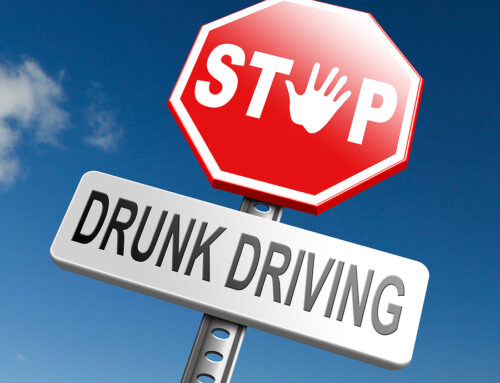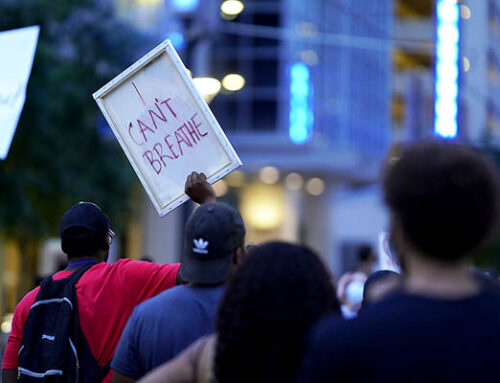Traditions and rituals form the framework on which culture rests; they foster and reinforce group identity and create continuity with the past. But not all rituals and traditions are valuable, acceptable, or safe. Hazing rituals, often associated with college fraternities and school sports teams, are generally humiliating, often dangerous, and – as the 2017 death of New Jersey native Timothy Piazza tragically demonstrated – sometimes deadly. In response to the 19-year-old’s death, the New Jersey Senate has passed a bill increasing the criminal repercussions for hazing when the act injures a victim. The anti-hazing bill also requires universities, high schools, and student organizations (such as fraternities and sororities) to take active steps to prevent hazing, and to punish it when such activities occur.

On February 2nd of 2017, Timothy Piazza attended a pledging event for prospective members at the Beta Theta Pi fraternity at Penn State. At this event he was expected to run “the gauntlet,” a ritual of initiation for fraternity hopefuls. What transpired that night was recorded by the frat house’s surveillance cameras, which authorities would later review to piece together the circumstances that led to Piazza’s death. Within a span of less than an hour and a half, Piazza was instructed or goaded to consume 18 alcoholic drinks as part of the ritual, pushing his blood alcohol content to dangerous levels: between .28 and .36, according to medical professionals. For context, New Jersey law makes it illegal to drive with a BAC of .08.
In the hours that followed Piazza’s running of “the gauntlet,” surveillance footage shows him stumbling and staggering with severe intoxication and suffering a series of falls, including a face-first tumble down a 15-foot flight of basement stairs. Some cursory attempts were made to care for Piazza by fraternity members: they carried him upstairs and placed him on a couch, attempted to rouse him by pouring liquid on him and slapping his face, and attempted to prop him into position with a backpack to prevent him from choking on his own vomit. However, video surveillance also reveals the fraternity members’ casual disregard for Piazza’s well-being. Two roughhousing fraternity brothers landed on top of Piazza’s limp and helpless form when one tackled the other, and on another occasion when Piazza rolled off the couch where he’d been dumped, three members picked him up and, according to the grand jury report, “slammed him” back onto the couch. On multiple occasions when Piazza had attempted to rise but had fallen onto the floor again, fraternity brothers were seen to notice him, step over his body, and go about their business while leaving him where he lay.
One fraternity brother seemed to recognize that Piazza was in need of medical attention during the pledging event, but the other members overruled him, confronting him angrily and shoving him into a wall. Later on, when the same brother again tried to argue for getting Piazza medical help, he was told that his opinion was not as valid as that of other members who were biology and kinesiology majors. It wasn’t until the next morning at around 10 o’clock when the fraternity brothers discovered Piazza, pale and stiff with cold extremities and blood on his face, that the lone frat brother’s insistence was proven justified. When he was finally brought to the hospital, it was discovered that Piazza had suffered multiple traumatic brain injuries (TBIs, often referred to as concussion injuries) and a skull fracture. In addition, his spleen had been lacerated, causing him to bleed into his abdominal cavity; doctors reported that roughly 80 percent of his blood supply ended up in his abdomen. He was pronounced dead in the surgical ICU of Hershey Medical Center on February 4th at 1:20am.
The catalyst for the recent legislation was 12-year-old Readington Middle School student Matthew Prager, a friend and neighbor of Timothy Piazza, who wrote a letter to state Senator Kip Bateman imploring that action be taken against hazing activities such as those that killed Piazza. Prior to the new law, hazing was considered a disorderly persons offense, answerable in municipal court. Under the newly-passed legislation, hazing that causes bodily injury is a fourth-degree crime, under the jurisdiction of Superior Court, and aggravated hazing (causing serious bodily injury) is a third-degree crime. The law also explicitly includes “causing, coercing, or forcing” a person to consume alcohol or drugs as a type of hazing with criminal penalties.
Timothy’s father, Jim Piazza, who has begun a campaign to strengthen anti-hazing legislation nationwide, praised the recent bill, saying that “impactful laws and proper enforcement are the only real deterrent” against this dangerous practice. With schools, student organizations, and legal authorities all sending the message that hazing will no longer be tolerated, the perception of hazing as a valued institutional tradition can be changed, exposing it for the pointless, cruel, and dangerous crime that it is.
Contact Howard P. Lesnik, Esq. Immediately
If you or a loved one is criminally charged in a Hazing incident, contact my office immediately. I am a New Jersey criminal trial attorney board certified by the NJ Supreme Court. New Jersey’s Hazing laws are extremely complex. Anyone who is charged with a SERIOUS court case needs to have an experienced criminal defense attorney. If you are a family member were issued a criminal charge for Hazing in New Jersey, contact me immediately so I can review your case and the evidence against you and advise you as to all possible defenses to make sure that you are properly represented. In many cases and circumstances a successful defense can lead to a downgrade or even the dismissal of the charges against you. Please contact me now by email, by phoning 908.264.7701, or by completing the form to the right to schedule your complimentary 30-minute strategy session.







